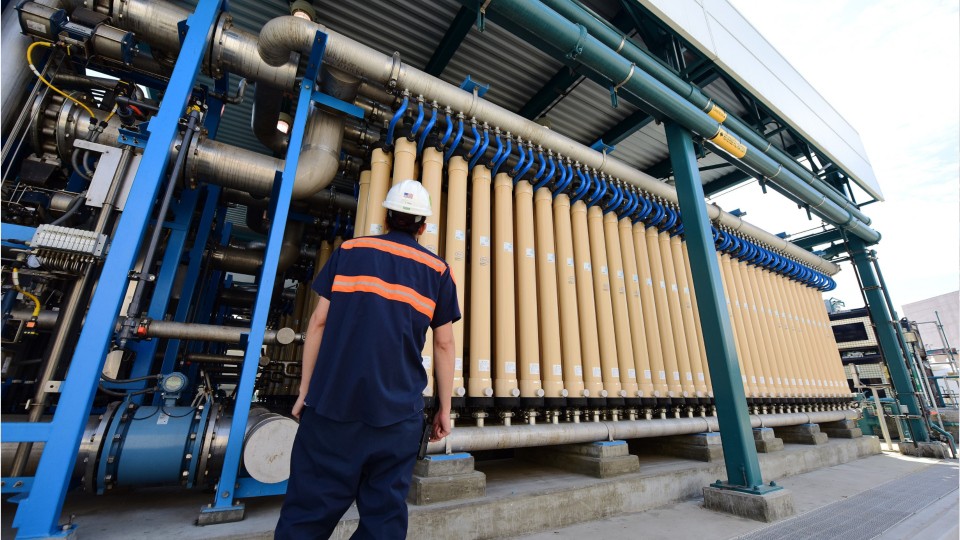Water Resource Specialists
Water Resources Planner
 Select a military branch to see samples.
No similar titles were found.
Select a military branch to see samples.
No similar titles were found.
Water Treatment Specialist
No similar titles were found.
Water Support Technician
No similar titles were found.
No similar titles were found.
What they do:
Design or implement programs and strategies related to water resource issues such as supply, quality, and regulatory compliance issues.
On the job, you would:
- Perform hydrologic, hydraulic, or water quality modeling.
- Analyze storm water systems to identify opportunities for water resource improvements.
- Conduct, or oversee the conduct of, investigations on matters such as water storage, wastewater discharge, pollutants, permits, or other compliance and regulatory issues.
Knowledge
Engineering and Technology
- product and service development
- design
Math and Science
- arithmetic, algebra, geometry, calculus, or statistics
- physics
Arts and Humanities
- English language
Safety and Government
- law and government
Skills
Basic Skills
- listening to others, not interrupting, and asking good questions
- reading work related information
Problem Solving
- noticing a problem and figuring out the best way to solve it
People and Technology Systems
- thinking about the pros and cons of different options and picking the best one
- figuring out how a system should work and how changes in the future will affect it
Abilities
Verbal
- communicate by speaking
- listen and understand what people say
Ideas and Logic
- make general rules or come up with answers from lots of detailed information
- notice when problems happen
Math
- add, subtract, multiply, or divide
- choose the right type of math to solve a problem
Visual Understanding
- see hidden patterns
Personality
People interested in this work like activities that include ideas, thinking, and figuring things out.
They do well at jobs that need:
- Integrity
- Analytical Thinking
- Attention to Detail
- Dependability
- Initiative
- Achievement/Effort
Technology
You might use software like this on the job:
Geographic information system
- ESRI ArcGIS software
- Geographic information system GIS software
Presentation software
- Microsoft PowerPoint
Analytical or scientific software
- Laboratory information management system LIMS
- Wallingford Software InfoWater
Education
Education: (rated 4 of 5)
bachelor's degree or
master's degree
usually needed
master's degree
usually needed
Job Outlook
Bright
New job opportunities are very likely in the future.
Explore More
- Conservation Scientists
- Environmental Engineers
- Environmental Restoration Planners
- Industrial Ecologists
- Water/Wastewater Engineers
You might like a career in one of these industries:
See more details at O*NET OnLine about water resource specialists.






